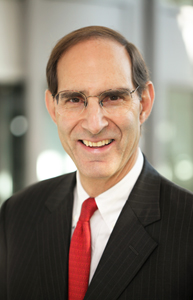5 minutes with... Eli Whitney Debevoise II
 When did you decide to become a lawyer? Why?
When did you decide to become a lawyer? Why?
In college. I had a visit with my grandfather and he opened my eyes to the wide range of ways to help people and serve the public good using the law.
Starting out, what did you expect from a career in the law?
I was concerned about drudgery but figured it would be part of paying my dues. In the event, drudgery has not played a big role in my legal experience.
How did you get into the areas of law you are known for today? By design? Chance? Both?
I had a summer job in a bank in Brazil recycling petrodollars and helping to create the Latin American debt crisis. That was my introduction to sovereign finance. Then, fortunately for me, somebody had to help resolve the matter.
What do you consider to have been your big break?
Joining Arnold & Porter, where everyone was trained as a generalist, and having William D Rogers as my mentor. As a young associate I was his chief of staff during his 'sabbatical' year at Cambridge University. He opened my eyes to the intersection of top-level technical lawyering and the policy world.
What differences do you see in today's legal market compared to when you started?
A much greater emphasis on marketing and beauty contests. I do not know how clients can find a truly trusted adviser who knows their business if every piece of legal work is assigned to the lowest bidder.
"I was concerned about drudgery but figured it would be part of paying my dues."
What achievement are you most proud of?
Recovering millions of dollars of ill-gotten gains from white-collar criminals for developing countries; the Brazilian Brady Plan debt restructuring; negotiating The World Bank capital increase (the first in 22 years) and share reallocation in 2008-2010, representing the United States.
What do you consider your greatest failure or regret?
I try to learn from my mistakes but I do not spend my life looking backward. My March Madness basketball bracket selections this year were a big failure.
What law would you change, abolish or create?
If I could, I would induce all countries to liberalize trade in legal services and allow greater mobility for lawyers in the interest of client service.
Who is your legal hero?
William D Rogers, Arnold & Porter partner, defense counsel in the Owen Lattimore case [Lattimore was accused of being a top Soviet spy], Deputy Administrator of the Alliance for Progress, President of the Council of the Americas, President of the American Society of International Law, Under Secretary of State for Economic Affairs, counsel to Henry Kissinger, horseman extraordinaire, loving husband and father, gentleman and mentor par excellence.
What career would you have in your second life?
History professor.
What slogan would you like to be remembered by?
He was a trusted adviser; I valued his judgment.
What advice would you give to students trying to enter the legal profession today? And secondly, to those who hope to ultimately get into the areas of law in which you are expert?
Learn to write clearly before you arrive at law school. Along the way study geography and history and become familiar and comfortable with multiple languages and cultures.